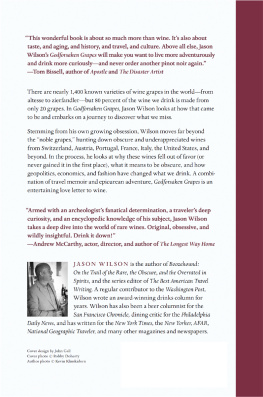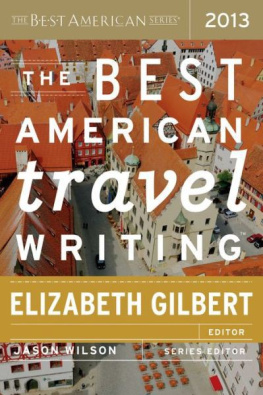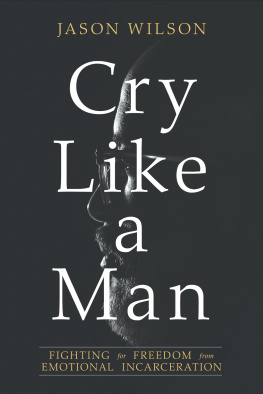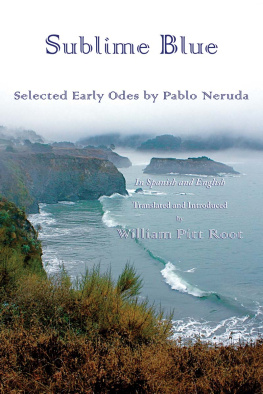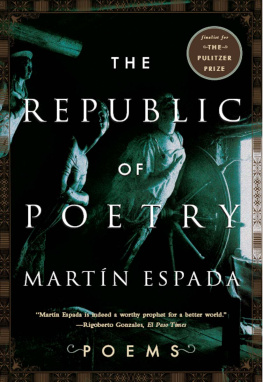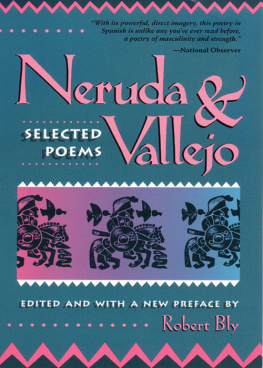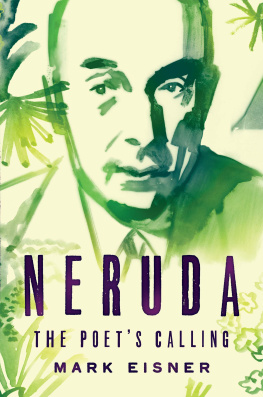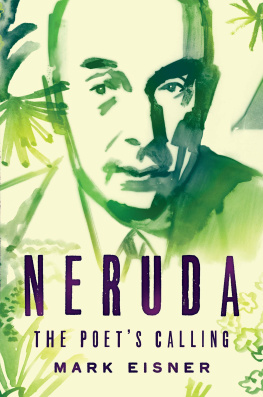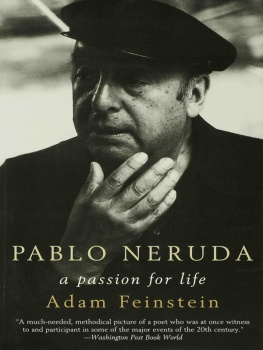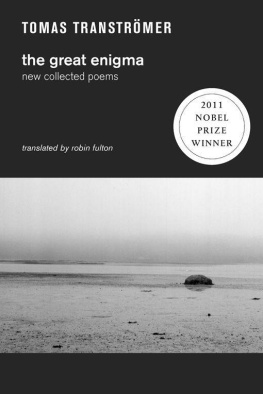
Coleccin Tmesis
SERIE A: MONOGRAFAS, 259
A COMPANION TO PABLO NERUDA
EVALUATING NERUDAS POETRY
Pablo Neruda was without doubt one of the greatest poets of the twentieth century. However, his work is extremely uneven, and long. The companion examines the view that there are two Nerudas, an early Romantic visionary and a later Marxist populist, who denied his earlier poetic self. By focussing on the poets apprenticeship, his struggle to read and incorporate French poetry and travel abroad and by looking closely at how Neruda created his poetic persona within his poems, this companion tries to establish what should survive of his massive output. By seeing his early work as self exploration through metaphor and sound, as well as through varieties of love and direct experience, the companion outlines a unity behind all the work, based on voice and a public self. This companion studies Nerudas debt to reading and books in depth and re-examines his change in poetics by concentrating on the early work up to Residencia en la tierra I and II and why he wanted to become a poet. Many critics have argued that some kind of critical assessment must be made in order for Nerudas later work to be read. This companion grounds this debate about quality and representativity in his Romantic thinking, sensibility and sincerity. Unlike a Borges or a Paz who accompanied their creative work with analytical essays, Neruda distilled all his experiences into his poems, which remain his true biography.
A vade mecum of tremendous value. Highly recommended. CHOICE.
Tamesis
Founding Editors
J. E. Varey
Alan Deyermond
General Editor
Stephen M. Hart
Series Editor of
Fuentes para la historia del teatro en Espaa
Charles Davis
Advisory Board
Rolena Adorno
John Beverley
Efran Kristal
Jo Labanyi
Alison Sinclair
Isabel Torres
Julian Weiss

To Andrea
PREFACE
I quote Neruda because nowhere in contemporary poetry have I read such a powerful visceral description of the bombing of civilians.
Harold Pinter, Nobel Lecture, Art, Truth & Politics
I have benefited from countless chats with Neruda scholars and critics, from the late Robert Pring-Mill to his biographer in English, Adam Feinstein. Over many years, I have taught classes on all aspects of Neruda, but concentrating on the Neruda I still read with enthusiasm, the great and dark poems up to the 1940s. Jean Franco set me on my way when I was an undergraduate, as did reading Neruda in translation in Evergreen Review. I heard Neruda recite his poems on two occasions in London so I can follow his voice while I read his later work. I bumped into him, conversing with Octavio Paz in a private hotel in Sloane Square, London, even though they were still not speaking to each other, and later visited Isla Negra.
My triple aim is to introduce Neruda to new readers, to rescue him from his complete works and to debate with more skilled and critical readers, aware that there is a Neruda claque, to which I do not belong, and that the secondary writing on him is massive. I tend to agree with Ilan Stavans that little is actually readable and realise that my interpretative prose may jar with the poems. To write about a great poet in another language and culture, however well I may know Spanish and Hispanic poetry, is an added risk, so I have added my own literal translations of the poems cited, while including an appendix on Nerudas translations into English, with the odd comments on the quality of translation throughout my text. When his and his critics prose is literal, I have translated it without too much loss. I have inserted abbreviated bibliographic details in the footnotes and full ones in the bibliography, unless the citation is local and then it is full in the note.
I would like to thank the Fundacin Pablo Neruda for permission to cite from his works, Professor Stephen Hart for suggesting the book, and Ellie Ferguson and the publishers for their careful tidying of my typescript.
JW, London
Introduction
Pablo Neruda was a great love poet. Love poems form the core of his abundant output and he wrote his love poems from the start to the end of his career as a poet.
Neruda was also a love poet in a less Romantic mode, with poems dealing with love for his patria , for his continent, its fauna and flora and geology; he wrote love poems about his fellow poets, his beloved Chileans and all working-class Latin Americans. He also celebrated, as a kind of tepid love poem, the simple things of life. Despite, then, the love poems to his party, to fellow communists and friends, it is essentially as a Romantic love poet that he survives and will be read and learnt by heart. The other side of the coin is that he is also a fierce hater and was involved, poetically and biographically, in countless scandals and feuds. In 2006 Loyola noted that attacking Neruda had become a national sport. So intensities of love and hate form the axis of his work.
Like many prolific writers, Neruda wrote constantly throughout his life as a daily discipline. You could say that he organised his life around his desire and need to write. The experience of loneliness and lovelessness at the core of his early years merge with the solitude necessary for any kind of writing. Nerudas life as a poet had to balance this need to be alone at a desk and write and yet not suffer a sense of abandonment. This theme and experience of alone-ness diminished with age, as he surrounded himself with friends and admirers, so that his later work is less intense, more communal and communicative. He noted this change himself:
The young writer cannot write without that thrill of loneliness, even if it is fictitious, in the same way that the mature writer cannot do anything without the taste of human company, of society.
Indeed, much of his work from the politicised 1940s onwards is flawed, as we will see, and yet contains some nugget of sound and meaning, some insight that confirms that he was in contact with his earthy muses. However, Nerudas powerful literary personality dominated views on his work. His posthumous memoirs, his adventurous life, his many lovers and love poems have led to countless biographic interpretations, and rightly so as he wrote the work he signed. Despite this inevitable biographic approach, I intend to focus on how Neruda recreated himself and the world inside his poems and then projected this persona on to readers what Selden Rodman called his capacity to project his own personality over his readers and critics.
The metaphor behind his reading is often digestive, as it was to Rita Guibert in 1974: I was a hungry and thirsty reader (PN5 1154). Strangely, few critics have alluded to such abundant reading, let alone explored the digestive metaphor and its excremental end result. One is Enrico Mario Sant in his Pablo Neruda: the Poetics of Prophecy , 1982, where he argued for a Borgesian Neruda, challenging the anti-intellectual image that Neruda himself fostered.
Neruda himself at the end of his Canto general bequeathed his old books to the future poets of America. He asked them to love his favourite authors from his select library in 1948:
Que amen como yo am mi Manrique, mi Gngora,
mi Garcilaso, mi Quevedo:
fueron
titnicos guardianes, armaduras
de platino y nevada transparencia,
que me ensearon el rigor, y busquen
Next page


